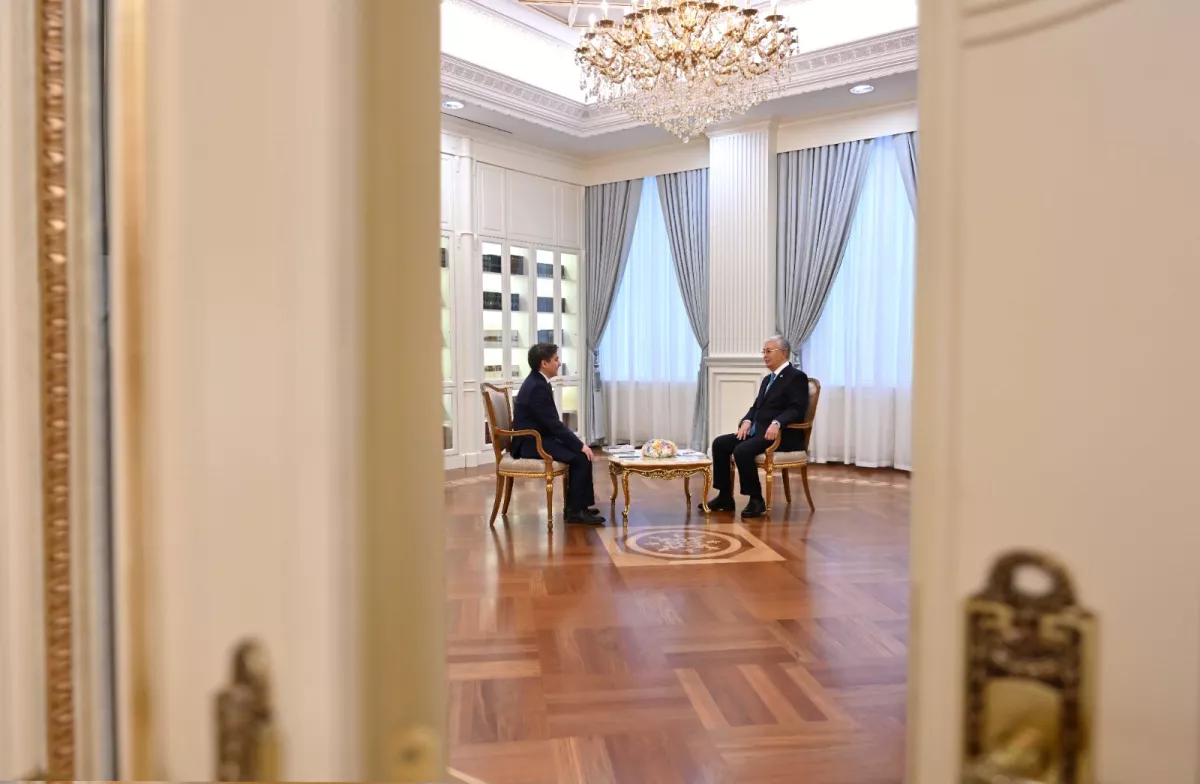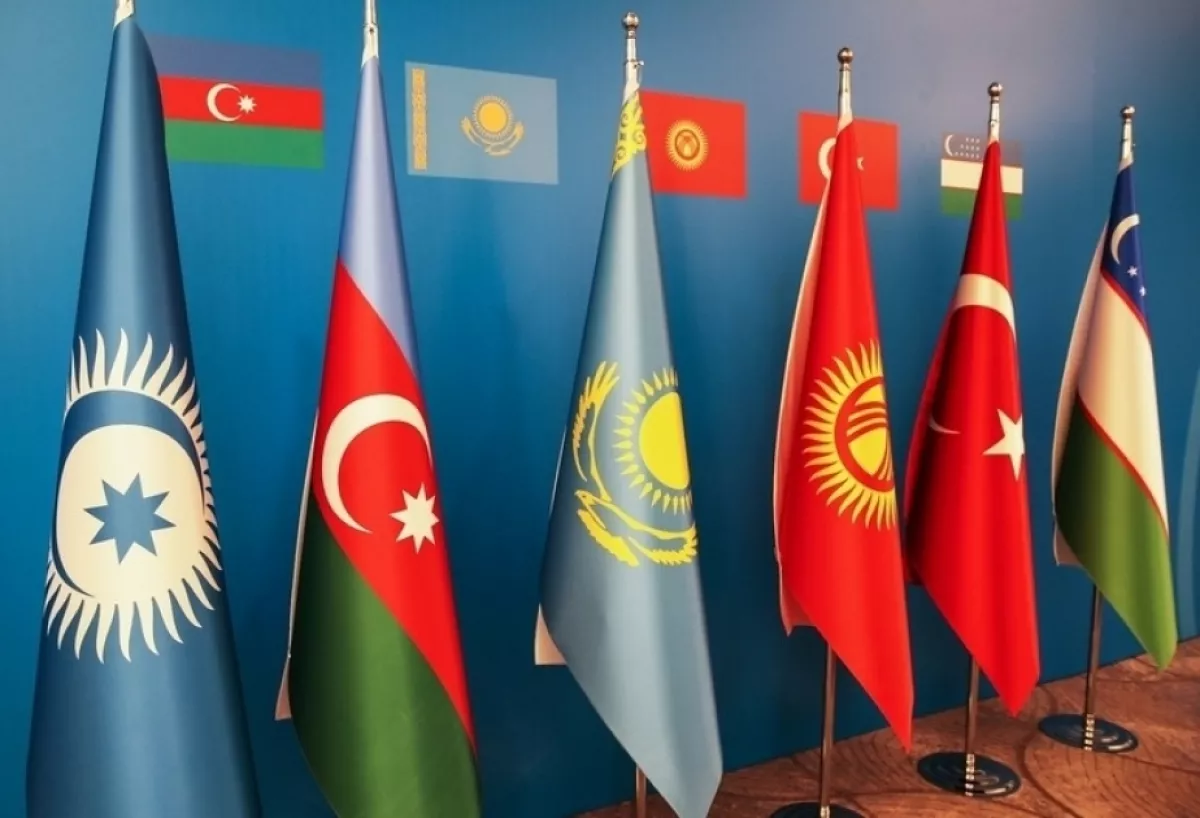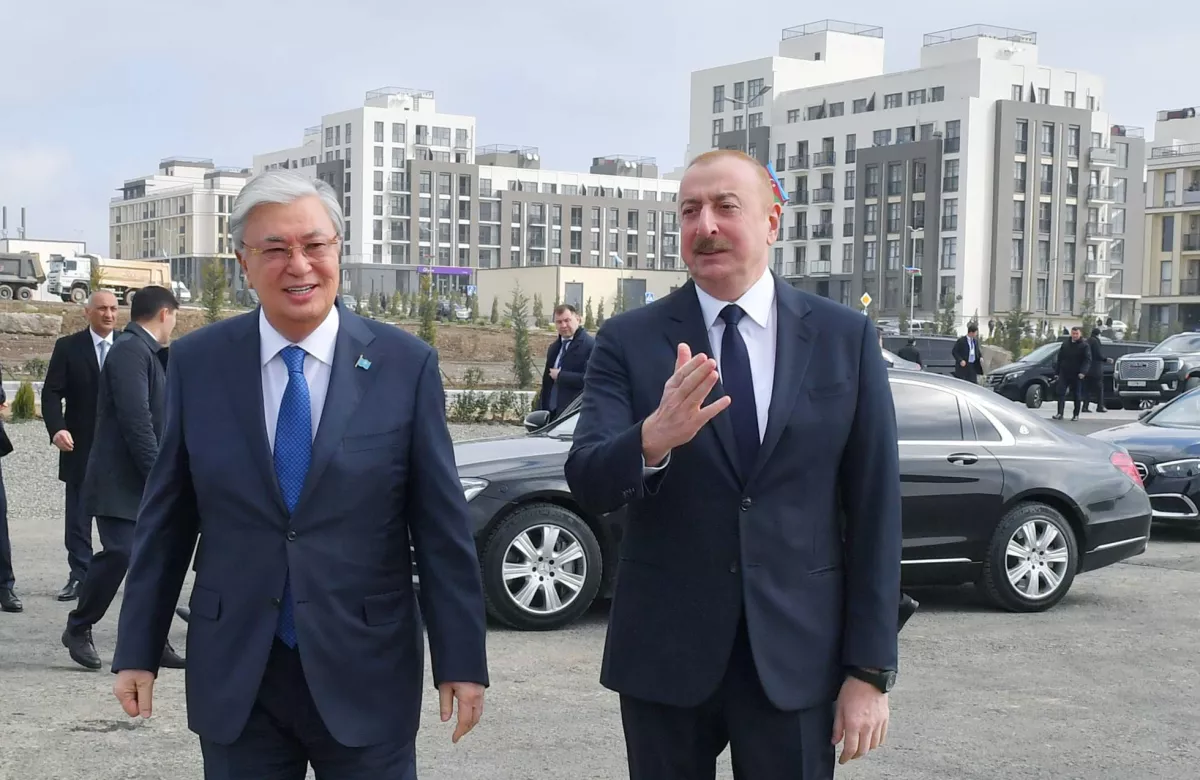Kazakhstan–Azerbaijan: Enhancing global significance of middle powers Turkic States advance development agenda
In an interview with the newspaper Ana tili (Mother Tongue), Kazakhstan's President Kassym-Jomart Tokayev made several significant policy statements, some of which hold considerable importance for the further development of the Organization of Turkic States (OTS) and relations between Central Asia and Azerbaijan (as a unified geopolitical region).
We aim to explore specific aspects of Tokayev's remarks, emphasizing the symbolic significance of the Kazakh President sharing his worldview with Ana tili, a weekly publication in the Kazakh language. This underscores a particular focus on President Tokayev’s emphasis on the international role of the OTS.
Focusing on strengthening Kazakhstan's economic potential, sovereignty, and international standing as his primary goals, President Tokayev described the countries within the Organization of Turkic States (OTS) as "our important geopolitical partners." He placed particular emphasis on the established close ties between educational and academic institutions, as well as the creative intelligentsia of these nations. Naturally, Tokayev also highlighted the significant strengthening of trade relations among OTS members, noting that in 2024, the volume of mutual trade surpassed $45 billion.
Regarding the implementation of the Trans-Caspian International Transport Route (Middle Corridor), the Kazakh President underscored the importance of enhancing cooperation in energy, industry, digitalization, and other areas. He also affirmed Astana's support for all constructive initiatives aimed at fostering greater unity within the Turkic world.

Overall, President Tokayev's remarks are a logical continuation of the positions he articulated last year during the informal OTS summit in Shusha and the 11th summit of the organization in Bishkek. Specifically, in Shusha, he declared that "our strength lies in unity" and, in light of the breakdown of the "global security architecture," emphasized the necessity of further strengthening the status of the OTS. This includes increasing freight transportation with member states and other countries.
At the time, Tokayev highlighted the close cooperation between Astana and Baku in operating the multimodal digital platform Digital Trade Corridor. He noted that the integration of the two countries' railway administrations led to a nearly 70% increase in freight volumes along the Middle Corridor. Additionally, he touched on the topic of laying a fiber-optic cable along the Caspian Sea's seabed.
Regarding the development of the OTS, the "Karabakh Declaration" adopted in Shusha portrayed the Turkic world as a family founded on shared ethnic roots, history, language, culture, traditions, and values of the Turkic peoples. It reaffirmed a commitment to the principles of peace, security, stability, development, and prosperity in the region and beyond.
This formulation clearly draws on the idea articulated by Azerbaijani President Ilham Aliyev during his inaugural speech in February 2024, where he emphasized the OTS as a primary international organization, stating, "it is our family. We have no other family. Our family is the Turkic world."
Subsequently, President Aliyev highlighted the importance of a unified position among Turkic states in the face of geopolitical challenges, urging them to act as a "unified force."
Building on these ideas, during the 11th OTS Summit in Bishkek, Kassym-Jomart Tokayev emphasized the organization's growing prominence on the global stage, which he attributed to "our unbreakable unity and solidarity." He also described the adoption of a unified Turkic alphabet as a historic milestone and highlighted the effective work of the Turkic Investment Fund.
Additionally, Tokayev proposed the idea of an agreement to ensure the sustainable development of freight transportation along the Middle Corridor. He further emphasized the importance of effectively utilizing the human resources of OTS member states to "modernize Turkic civilization."
In line with this vision, he suggested establishing mutual broadcasting of cable television channels to create a unified information space for the Turkic world.

In the context of the Bishkek summit, it is important to highlight an initiative by official Baku to provide $2 million in financial support to the OTS Secretariat. At the same event, President Ilham Aliyev, addressing the growing threats worldwide, placed particular emphasis on cooperation in the fields of defense, security, and the defense industry, underscoring the significance of military exercises involving the armed forces of OTS member states.
Thus, the Turkic focus expressed in Tokayev’s interview once again demonstrated how the OTS is emerging as a tangible geopolitical actor on the international stage.
At the same time, the President of Kazakhstan touched upon the role of middle powers, including his own country. According to Tokayev, this status demands above all responsible behavior on the global stage and a constructive approach to addressing the pressing issues of our time. In line with this, Astana consistently supports the United Nations as the "common home of all humanity," albeit acknowledging the paralysis of the UN Security Council.
Tokayev also highlighted the potential of middle powers to "play a vital role in overcoming the crisis of international trust and the deficit of responsible global leadership." He argued that middle powers, through collective efforts, "can build new, durable bridges between conflicting geopolitical poles," contributing to a reduction in global confrontation levels.

Notably, Tokayev's position aligns closely with Baku's perspective. Azerbaijan is also recognized globally as a "middle power" that conducts a successful foreign policy, promotes values fostering peace and sustainable development, and makes significant contributions to international security and stability. Additionally, Azerbaijan plays a pivotal role in regional and European energy security and sustainable development through the implementation of successful regional energy and infrastructure projects.
Just two weeks ago, President Ilham Aliyev emphasized Azerbaijan's potential to contribute to easing international tensions. He attributed this to the unique characteristics of the country's foreign policy, which enable Azerbaijan to be perceived as an independent geopolitical actor by both the West and the East.
This alignment clearly demonstrates the extent to which Astana and Baku share common positions across all key areas of international affairs. A striking example of this was Tokayev’s endorsement of Astana’s decision to send the flight recorders from an aircraft, en route from Baku to Grozny, that came under fire in Russian airspace at the end of 2024, to Brazil (the aircraft’s manufacturer). Tokayev described this as "the only correct decision to ensure an objective and unbiased investigation."
The above requires little additional commentary. It suffices to underline the vast potential of the OTS. Amid the geopolitical turbulence the world is currently experiencing, the organization has a unique opportunity to assert itself more prominently on the global stage—particularly as it includes middle powers such as Kazakhstan and Azerbaijan among its members.








